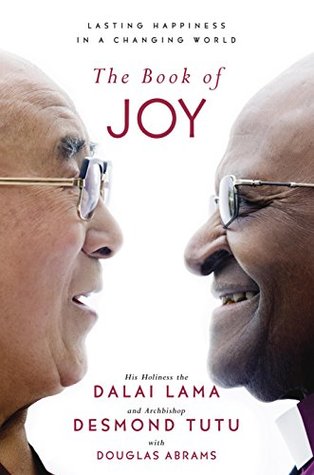More on this book
Community
Kindle Notes & Highlights
Read between
June 22 - June 28, 2020
“Joy,” as the Archbishop said during the week, “is much bigger than happiness.
“Discovering more joy does not, I’m sorry to say,” the Archbishop added, as we began our descent, “save us from the inevitability of hardship and heartbreak. In fact, we may cry more easily, but we will laugh more easily, too. Perhaps we are just more alive. Yet as we discover more joy, we can face suffering in a way that ennobles rather than embitters. We have hardship without becoming hard. We have heartbreak without being broken.”
We create most of our suffering, so it should be logical that we also have the ability to create more joy. It simply depends on the attitudes, the perspectives, and the reactions we bring to situations and to our relationships with other people. When it comes to personal happiness there is a lot that we as individuals can do.”
Now if we look at today’s materialistic life people seem mainly concerned with sensory experiences. So that’s why their satisfaction is very limited and brief, since their experience of happiness is so dependent on external stimuli.
When we are able to move beyond our own pain and suffering, we are more available to others;
This is really the practice at the core of all the world’s religions—love.
Sadness is a very powerful and enduring emotion.
But our life is short. Now you see, we are guests here on this planet, visitors who have come for a short time, so we need to use our days wisely, to make our world a little better for everyone.”
The ability to be present in each moment is nothing more and nothing less than the ability to accept the vulnerability, discomfort, and anxiety of everyday life.
“It is not happiness that makes us grateful. It is gratefulness that makes us happy.


